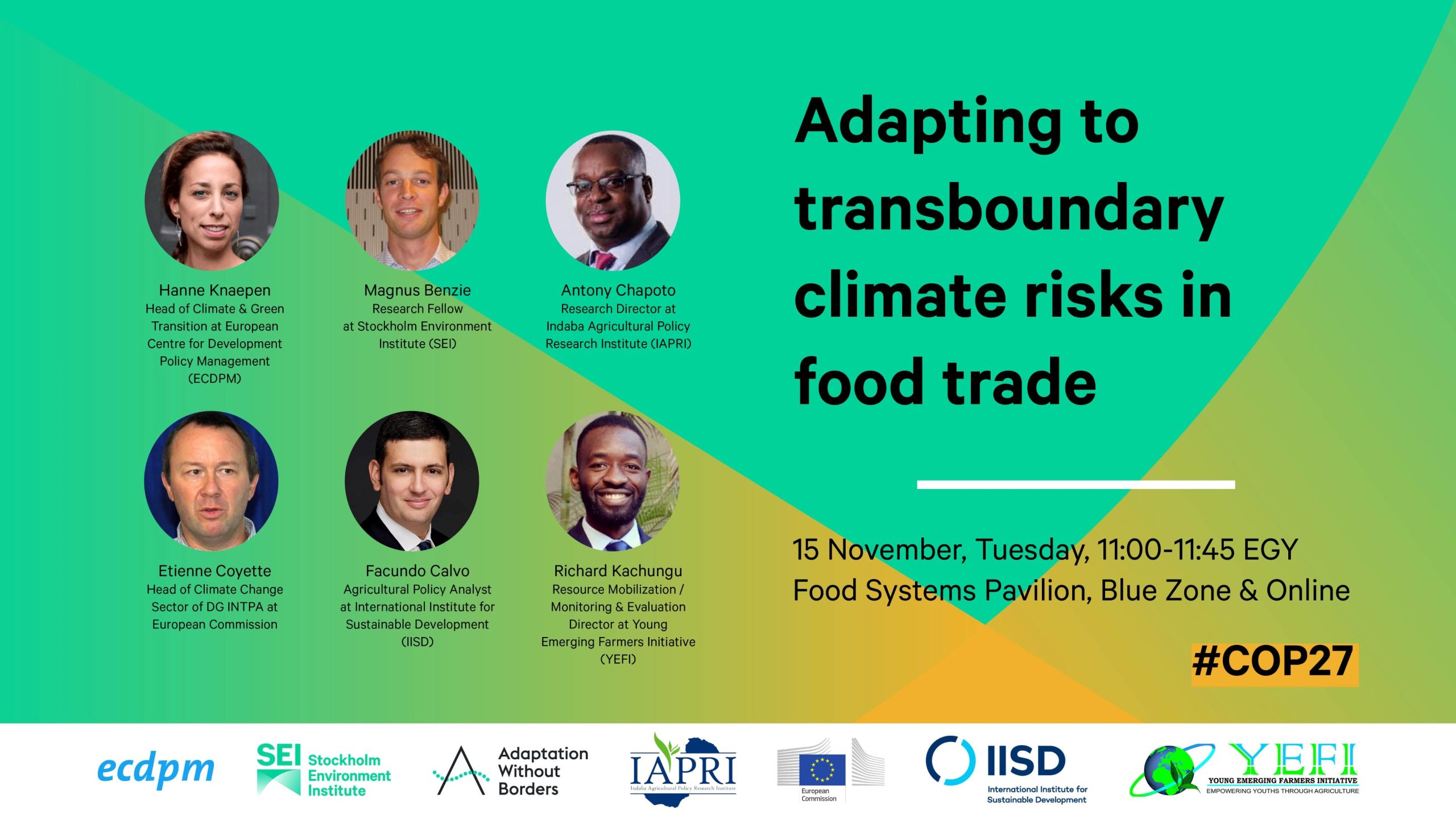

This event explores how climate change creates risks for the global food system that interact with other drivers of instability to create major threats to food security worldwide. In an interconnected world, the impacts of climate change can cascade through international trade from one country to another, creating risks for both producers and consumers. Reduced agricultural yields as a result of climate change can drive up food prices on global markets, and the responses to these risks – such as export bans and panic buys – can aggravate the effects on the poorest and least resilient. This includes both vulnerable, import-dependent countries and small island developing states (SIDS), but also those in higher income countries that already struggle to make ends meet.
These transboundary climate risks, escalating through international trade, urgently require new forms of adaptation. This event represents a key opportunity to unpack the complexity of the global food system and discuss how to better manage and adapt to trade disruptions as a result of climate change:
- What are the adaptation options to manage transboundary climate risks to food security?
- What are the potential trade-offs and conflicts of interest involved in these options?
- How can trade policies help tackle the climate crisis?
- And how can we close the gap between the global climate and trade deliberations?
Speakers:
Magnus Benzie, Stockholm Environment Institute (SEI)
Antony Chapoto, Indaba Agricultural Policy Research Institute
Etienne Coyette, European Commission
Facundo Calvo, International Institute for Sustainable Development (IISD)
Richard Kachungu, Young Emerging Farmers Initiative
Moderator – Hanne Knaepen, Head of Climate & Green Transition, ECDPM



